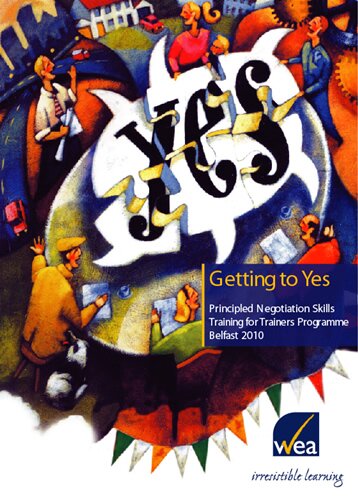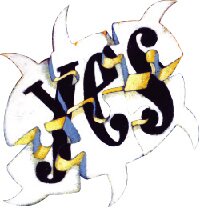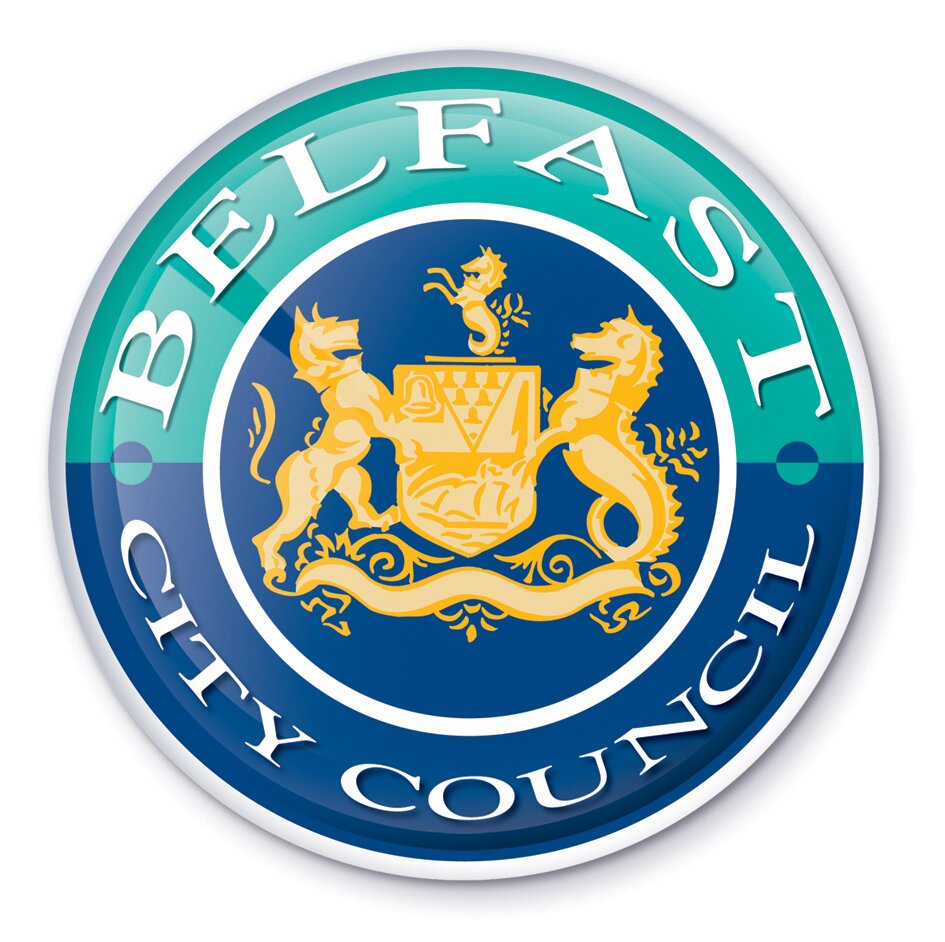| Getting To Yes |

|

|

|
|
The "Getting to Yes" programme is a training for trainers programme aimed at people who have been involved in Principled Negotiation Skills courses in the past as learners and who now want to be able to train others in their communities. It is the intention of the programme to train up to 14 people already working in the community to become Principled Negotiation Skills trainers. They will then be able to train others in their community so that they are equipped with the skills to achieve sustainable agreements on community conflict issues. The programme will consist of the following elements: 
The training for trainers programme is accredited by the Open College Network. All of the training is provided free and we can pay people who have successfully completed the training for trainers course to then deliver the community courses. What is Principled Negotiation? Negotiation is an approach to resolving conflicts that can be appropriate where the two parties in dispute are willing and able to meet and communicate with one another directly. We all engage in negotiations everyday, although this may not be the term we use. We negotiate with our family and friends (e.g. who will pick up the kids today?) We negotiate at work over the allocation of tasks, or more formally we might be involved in union/management negotiation. However much practice we have had, we can always improve. One of the biggest challenges is to shift our mind set away from the traditional win/lose model to find ways to build mutually beneficial agreements. In their seminal work, Getting to Yes, Roger Fisher and William Ury set out to challenge the traditional ways of conducting negotiations and called this new approach Principled Negotiation. The WEA, with help from Fisher’s Conflict Management Group, turned the fundamentals of Principled Negotiation into a course primarily aimed at community organisations. Since 2002 the WEA have held many Principled Negotiation Skills courses with groups dealing with community disputes, interface violence and tensions surrounding marches. Courses have also been held with Trades Unions and the emergency services. How do I join the programme? You must consider the following questions:
If you believe you can answer yes to these questions then contact Maura Kavanagh to express your interest in a place, or to ask for further information Once you have expressed your interest you will then receive full information, including dates of the courses.
|



